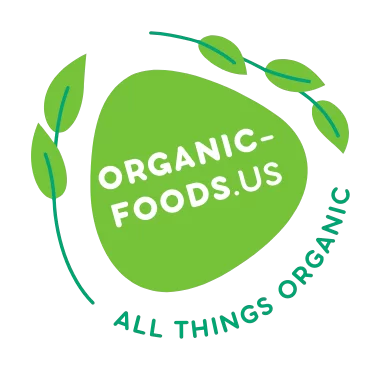Organic Meal Planning for Potluck Shares
Introduction to Organic Potluck Planning
Organizing a potluck can be a delightful way to bring friends and family together, but when you add the element of organic meal planning, it elevates the experience to a whole new level. Organic potlucks not only promote healthier eating but also support sustainable farming practices. In this article, we’ll explore how to plan an organic potluck that everyone will enjoy, from selecting the right ingredients to coordinating with your fellow potluck participants.
Choosing Organic Ingredients
The cornerstone of any organic potluck is, of course, the use of organic ingredients. These are foods produced without synthetic pesticides, genetically modified organisms (GMOs), or artificial fertilizers. When planning your dish, consider visiting local farmers’ markets or organic grocery stores to source your ingredients. Not only will you be supporting local agriculture, but you’ll also ensure that your dish is as fresh and nutritious as possible.
When selecting your ingredients, think about the seasonality of produce. Seasonal fruits and vegetables are not only at their peak flavor but are also more likely to be locally sourced, reducing the carbon footprint of your meal. For example, in the summer, you might opt for organic tomatoes, basil, and zucchini to make a delicious, fresh pasta salad.
Planning Your Dish
Once you’ve chosen your ingredients, it’s time to plan your dish. Consider the dietary preferences and restrictions of your fellow potluck attendees. Are there any vegetarians, vegans, or people with food allergies? Planning a dish that can accommodate various dietary needs will make your potluck more inclusive and enjoyable for everyone.
A great way to ensure variety at your potluck is to coordinate with other participants. You might set up a shared document or use a group chat to discuss what everyone is bringing. This way, you can avoid having too many similar dishes and ensure a well-rounded meal. For instance, if someone else is bringing a salad, you might decide to contribute a hearty organic quinoa and black bean dish instead.
Preparing Your Organic Dish
When it comes to preparing your organic dish, simplicity can be your best friend. Organic ingredients often have more robust flavors, so you might not need as many seasonings or additives. A simple organic roasted vegetable medley, seasoned with just olive oil, salt, and pepper, can be a crowd-pleaser.
Here’s a basic recipe for an organic roasted vegetable dish that you can bring to your potluck:
| Ingredient | Quantity |
| Organic carrots | 1 lb |
| Organic zucchini | 2 medium |
| Organic bell peppers | 2 |
| Organic olive oil | 2 tbsp |
| Salt | To taste |
| Pepper | To taste |
Instructions: Preheat your oven to 425°F (220°C). Chop the vegetables into bite-sized pieces, toss them with olive oil, salt, and pepper, and spread them out on a baking sheet. Roast for 25-30 minutes, or until the vegetables are tender and slightly caramelized.
Sharing the Organic Experience
One of the joys of a potluck is sharing not just the food but also the stories behind it. When you bring your organic dish to the potluck, take a moment to share where your ingredients came from. Did you pick up the carrots from a local farmer who uses sustainable practices? Or perhaps the zucchini was grown in your own backyard garden? Sharing these stories can inspire others to consider organic options in their own meal planning.
Moreover, consider using reusable or compostable containers for your dish. This not only reduces waste but also aligns with the sustainable ethos of organic eating. You might even encourage other participants to do the same, turning your potluck into a zero-waste event.
Benefits of Organic Potlucks
Organic potlucks offer numerous benefits beyond just delicious food. They promote healthier eating habits by encouraging the consumption of fresh, nutrient-rich foods. They also support local economies and sustainable farming practices, which are crucial for the health of our planet. According to a study by The Organic Center, organic foods can have higher levels of certain nutrients and lower levels of pesticides, making them a healthier choice for potluck dishes.
Additionally, organic potlucks can foster a sense of community and shared values. When people come together to enjoy a meal made from organic ingredients, it creates a space for conversation about health, sustainability, and the importance of supporting local agriculture. This can lead to stronger community bonds and a greater collective commitment to sustainable living.
Overcoming Challenges
While organic potlucks have many benefits, they can also present some challenges. Organic ingredients can sometimes be more expensive or harder to find, especially in certain regions. However, there are ways to overcome these obstacles. For instance, you might consider joining a community-supported agriculture (CSA) program, which can provide you with a regular supply of fresh, organic produce at a more affordable price.
Another challenge can be coordinating with a large group of people, especially if everyone has different dietary needs and preferences. To address this, you might use a tool like a shared spreadsheet or an app designed for potluck planning. These tools can help you keep track of who is bringing what and ensure that your potluck is well-balanced and inclusive.
Conclusion
Organic meal planning for potluck shares is a rewarding endeavor that brings people together around healthy, sustainable food. By choosing organic ingredients, planning your dish thoughtfully, and sharing the experience with others, you can create a potluck that is not only delicious but also good for the planet. Whether you’re a seasoned organic cook or just starting out, the joy of sharing an organic meal with friends and family is an experience that is truly enriching.
So next time you’re planning a potluck, consider going organic. Not only will you enjoy the benefits of healthier eating, but you’ll also be contributing to a more sustainable future. And who knows? You might just inspire others to do the same. For more tips on organic meal planning, check out this guide from the Organic Trade Association.

